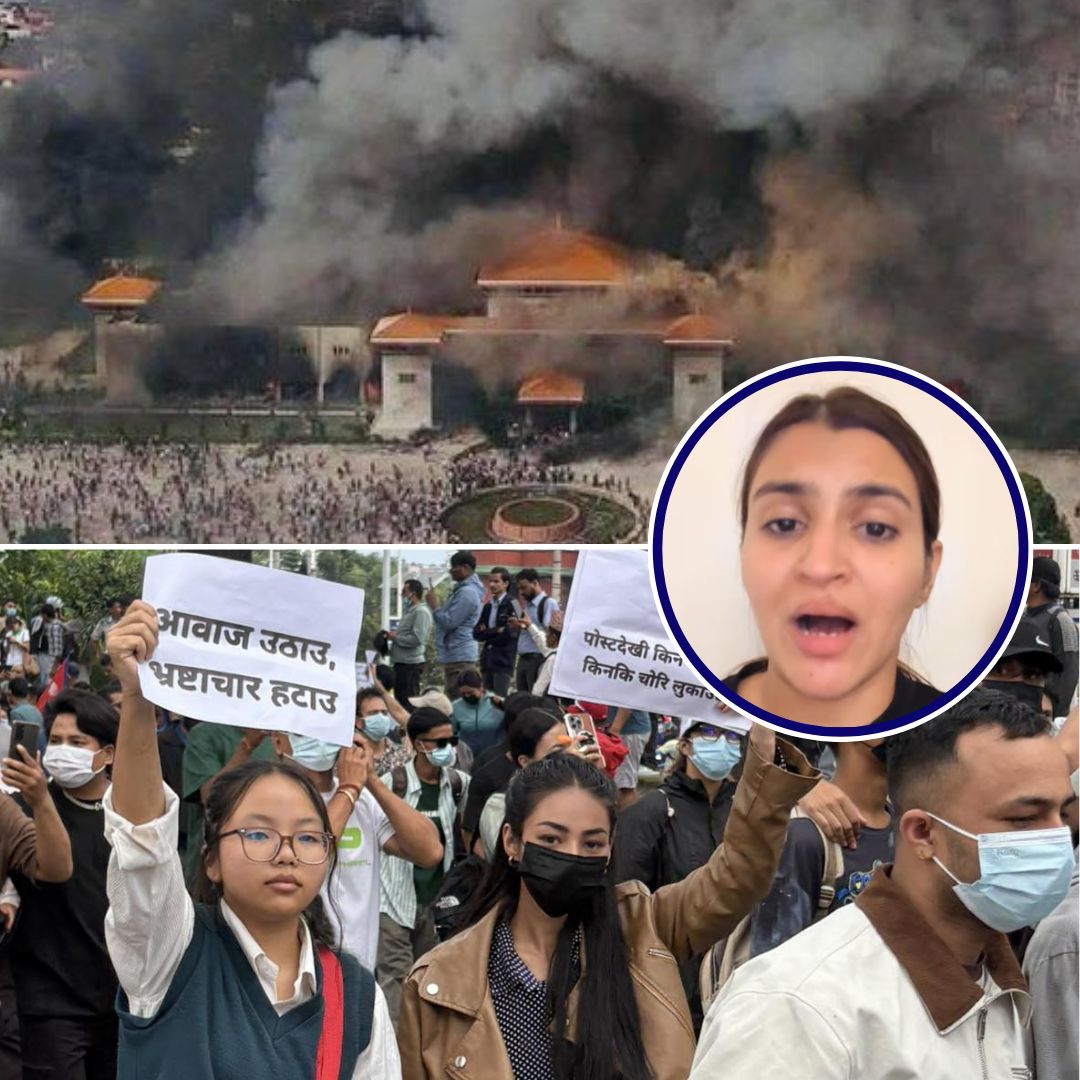Upastha Gill, an Indian tourist stranded in Pokhara, Nepal, has issued a desperate plea for assistance after her hotel was set ablaze during violent protests in the country. Gill, who had travelled to Nepal to host a volleyball league, narrowly escaped a mob chasing her with sticks and has since been relying on the hospitality of locals for shelter.
The unrest, which erupted due to a sweeping social media ban and allegations of political corruption, forced Nepal’s Prime Minister K.P. Sharma Oli to resign on September 9, 2025. With the situation deteriorating rapidly, Gill and many other Indian nationals remain stranded, awaiting help from the Indian Embassy.
Embassy Actions and Official Advisories
The Indian Embassy in Kathmandu has been actively coordinating relief and assistance efforts for Indian citizens caught in the turmoil. It has issued an advisory urging nationals to defer travel to Nepal until the situation stabilises and to shelter in their current accommodations, avoiding streets and public gatherings. The Embassy has shared emergency helpline numbers (+977-9808602881 and +977-9810326134) and urged travellers to remain in close contact.
The Indian Ministry of External Affairs (MEA) has echoed these warnings, advising all Indians in Nepal to exercise extreme caution following curfews imposed by Nepalese authorities amid ongoing clashes. Flights to and from Nepal have been suspended by major airlines including Air India and IndiGo, complicating evacuation efforts.
Escalation of Violence and Political Fallout
The protests began as peaceful demonstrations against corruption, nepotism and ban on social media by the Oli government but quickly escalated into violent clashes involving both protesters and security forces.
The Nepalese police’s use of tear gas and rubber bullets resulted in at least 22 deaths and hundreds of injuries, prompting nationwide curfews in Kathmandu, Pokhara, and other cities. Protesters targeted government offices, residences, and reportedly, foreigners’ accommodations, creating a perilous environment for visitors like Gill.
Prime Minister Oli’s resignation came as a direct consequence of the protests, heightening political uncertainty. The Nepalese Army took control of critical locations, including the capital’s international airport, to quell the unrest and restore order. They have called for peaceful dialogue to resolve the crisis, but sporadic clashes and arson continue to disrupt daily life and threaten the safety of civilians and tourists alike. Reportedly Hilton Hotel was also burnt down today.
The Nepalese Army has reaffirmed its commitment to restoring peace, with troops patrolling major cities including Kathmandu and Pokhara to enforce curfews and prevent further violence. Meanwhile, the protest movement’s core “Gen Z” leaders have distanced themselves from the violent acts, claiming their peaceful protests were hijacked by opportunist infiltrators. Efforts are underway to engage opposition groups for dialogue aimed at lasting political reform and stability.
The Logical Indian’s Perspective
This crisis vividly demonstrates the far-reaching impacts of political instability that extend beyond borders, risking the lives of ordinary citizens and foreigners alike. While the protests highlight genuine grievances about corruption and governance, violence can never be a justified means to political change.
The Logical Indian strongly advocates for calm, empathy, and dialogue as the only sustainable pathways to resolve such conflicts. Governments in the region must prioritise cooperation to protect vulnerable citizens and avert humanitarian crises.
Advisory for Nepal @MEAIndia pic.twitter.com/lLoMTi5HgQ
— IndiaInNepal (@IndiaInNepal) September 9, 2025










